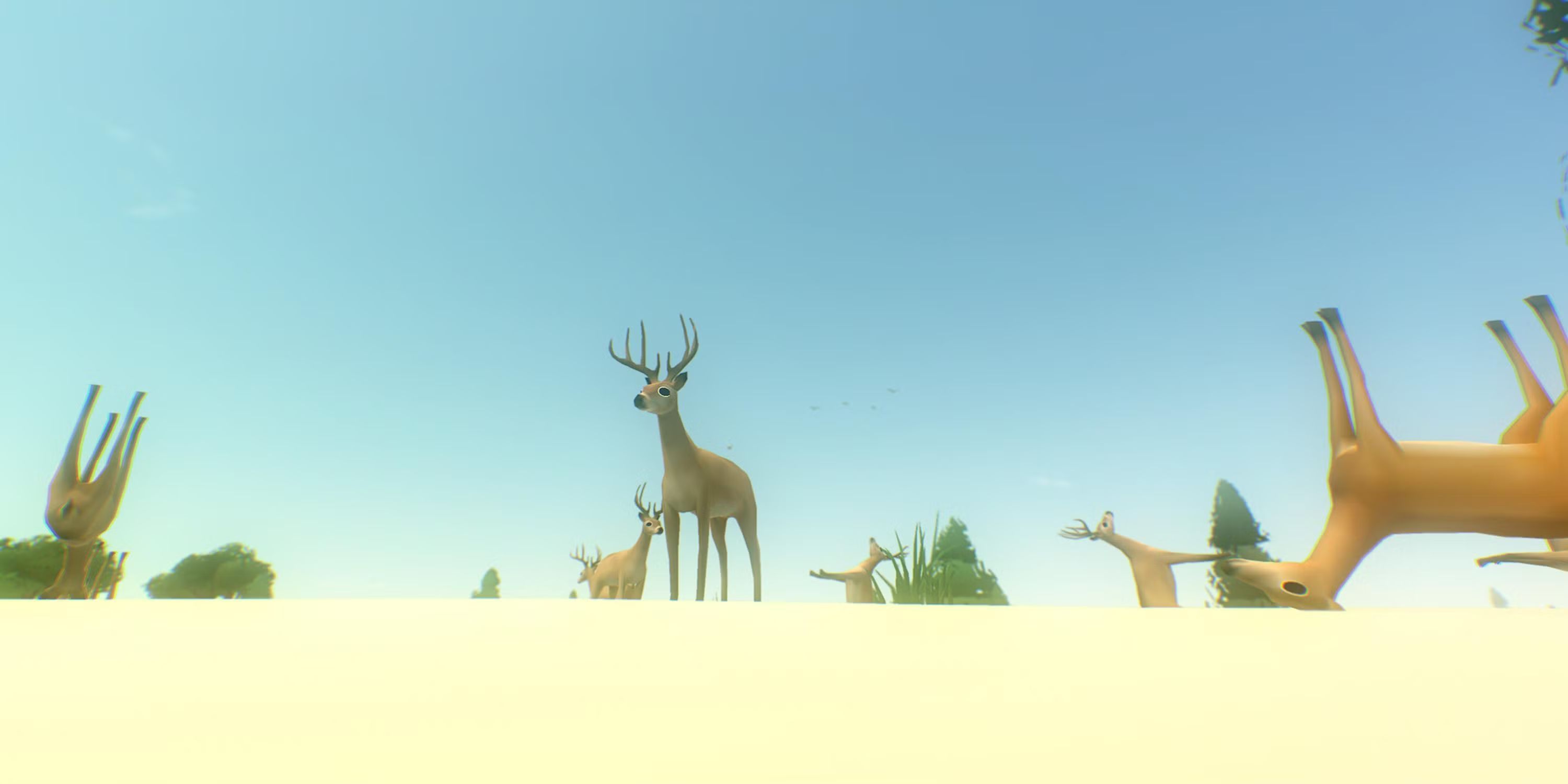The Most Successful Solo Game Devs
Description

Many people associate video games with massive budgets, stunning graphics, and big-name voice actors. In reality, though, some of the most beloved and successful games come not from studios, but from a single person grinding away for years coding, composing, designing, and debugging alone in their bedroom until their vision finally comes to life. Whether it was through the quality of the product, word-of-mouth, or sheer luck, these developers managed to turn their games into something greater, building universes, communities, and even entire new genres.
Here are seven developers whose names became inseparable from their creations. Some of them went on to form their own studios, others continue to work alone, but they all prove just how far one person can push a dream.
Eric Barone (Stardew Valley)
A Harvest Tended By One Pair Of Hands
What started in 2012 as a simple project to improve a résumé ended up becoming a worldwide phenomenon. Eric Barone started Stardew Valley hoping to finish it in a few months, but ended up spending over four years drawing sprites, writing every line of code, and composing every music track himself. His only goal was to create the farming sim he wished Harvest Moon still was.
The humble indie project went on to sell over 20 million copies and inspired an entire wave of cozy games. Even after the game’s initial success, Barone continued to work alone, adding major free updates instead of charging for DLC. In 2023, he announced his next game, Haunted Chocolatier, which promises more of Stardew Valley’s signature charm with a new magical twist. For a man who just wanted a better job application, he’s done quite a bit of overachieving.
Lucas Pope (Papers, Please)
The Stamp Of Approval On Dystopia
A former employee of Naughty Dog, Lucas Pope, left the company due to its corporate developments and moved to Japan, tinkering with the idea of a game where you work as an immigration inspector. The result of his wildly left-field idea was Papers, Please, a bleak but strangely addictive “puzzle game” about stamping passports, battling self-conscience, and paying bills in a fictional dystopian country.
Topping Papers, Please’s genius mixture of detective work weaved in with moral dilemmas seemed like an impossible undertaking, but Pope managed it with 2018’s Return of the Obra Dinn, a monochrome detective mystery game with time-rewind mechanics which became just as celebrated as his previous work. Since then, Pope has remained firmly in the solo dev sphere, proving that his brain is wired for puzzles others couldn’t even comprehend, let alone dream up.
Toby Fox (Undertale)
A One-Man Undertaking Turned Cultural Phenomenon
Drawing inspiration from EarthBound and Mother 3, Toby Fox created a world where kindness could be just as valuable as violence. With a signature unusual combat system, wacky humor, lovable characters, and surprisingly emotional writing, Undertale exploded into popularity overnight in 2015 and is still revered to this day.
Fox wrote all the code, sprites, and the entire iconic soundtrack for the game by himself. Though others in the industry have recognized his genius, like Super Smash Bros. Ultimate borrowing his musical prowess, he has continued mostly working solo on his next game, Deltarune, releasing it chapter by chapter. From someone who started out releasing his work for free on EarthBound fan forums, Fox has become one of the most recognizable names in indie game history.
Jonathan Blow (Braid)
Time, Patience, And One Man’s Puzzle
When it launched in 2008, Braid redefined what indie games could be. Jonathon Blow self-funded the whole project, pouring not just his own money but several years of his time into a side-scrolling platformer where time manipulation wasn’t just a gimmick. Each world introduced new rules for how time flowed, making players rethink even the simplest jump.
His next work, The Witness, released in 2016 and was divisive for its abstract storytelling, but the minimalist presentation and interconnected puzzle logic became an instant talking point. Jonathan Blow remains a pioneer, and his work has become a poster child for indie creativity, proving that an uncompromising vision could make a splash in an industry dominated by big-budget studios.
David OReilly (Everything)
Mountains, Universes, And A Very Specific Everything
David OReilly started off as an experimental animator before fleshing out into video games. His first title, Mountain, was a peculiar little living toy where players simply watched a mountain exist and evolve with little interactivity from the player. Three years later, he flipped the script with Everything, a philosophical sandbox where everything could be controlled, from animals to galaxies.
OReilly doesn’t approach designs with traditional gameplay goals, but his works have been praised for being blends of art installation and interactive media. His background in film animation seeps into every frame, making his games as much about how they make you feel as what they let you do.
Thomas Happ (Axiom Verge)
Metroidvania In A Single Set Of Hands
A passion project born out of nearly five years of work, Thomas Happ did everything for Axiom Verge, from coding to sprite work to music, all by himself. A former developer on licensed games like Tiger Woods PGA Tour, Happ took the leap into solo work and created a sprawling sci-fi Metroidvania filled with glitching mechanics and mysterious lore.
Released in 2015, Axiom Verge won high praise for its gameplay, story, and atmosphere, which made it feel like a lost cousin of Super Metroid. He then went on to make a sequel in 2021, proving that the first success was no fluke. Happ’s games are a love letter to fans of the Metroidvania genre, and the name of his work sits comfortably alongside the classics that inspired it.
Jun’ya “ZUN” Ōta (Touhou Project)
The Bullet Hell That Never Ends
You might feel lied to if told that Touhou Project is made by a group named Team Shanghai Alice. Except, Jun’ya Ōta is the sole member of that group and only named it so he could apply as a game circle for Comiket. Running since 1996, the Touhou Project series has expanded into one of the largest doujin phenomena in Japan, inspiring fan games, comics, and music arrangements that dwarf even some AAA titles in sheer volume of content.
ZUN’s carefree approach to licensing and encouragement of fan works helped the series grow into a cultural juggernaut. To this day, he continues to release new entries, working on them all by himself. Maintaining the DIY spirit that defined the series nearly 30 years ago, Jun’ya “ZUN” Ōta has built an empire out of pixels and projectiles.




